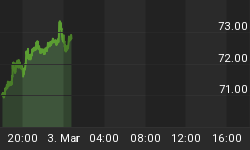In the March 1 FT, Todd Thompson argues that one reason to be optimistic about the economic growth prospects for China and India is the potential demand for goods and services emanating from these two populous regions ("Asia's dance of the twin elephants," http://news.ft.com/cms/s/597191ce-a8c8-11da-aeeb-0000779e2340.html). The principal sources of demand are increased consumption of a rising middle class and infrastructure needs. Mr. Thompson was either dozing during the first Econ 101 lecture or did not take the course. As anyone who was awake during that lecture knows, supply is the economic challenge, not demand. Anyone who has children or is acquainted with U.S. baby boomers knows that the demand for goods and services is unlimited. It is the supply of those goods and services that is scarce. India has "needed" an improved infrastructure for decades. And it has a teeming mass of citizens that "need" more food, clothing and shelter. So, India's economic challenge has not been demand. Rather, India's economic challenge has been to produce the quantity of goods and services to accommodate this demand either directly or through trade. The reason to be bullish on the Chinese and Indian economies today is that through deregulation the inherent talents of their populations have been allowed and encouraged to be employed in productive ways. The reason to be bullish on the Chinese and Indian economies is because of their potential to supply more goods and services, not their potential to demand more.
 |
Gold •607 days | 2,368.70 | +35.30 | +1.51% |
 |
Platinum •15 mins | 2,303.10 | -11.80 | -0.51% |
 |
WTI Crude •11 mins | 72.70 | +1.47 | +2.06% |
 |
Gasoline •12 mins | 2.418 | +0.047 | +1.98% |
 |
Ethanol •607 days | 2.161 | +0.000 | +0.00% |
 |
Silver •607 days | 30.82 | +1.16 | +3.92% |
 |
Silver • 607 days | 30.82 | +1.16 | +3.92% | |
 |
Copper • 607 days | 4.530 | +0.111 | +2.51% | |
 |
Brent Crude • 11 mins | 79.76 | +2.02 | +2.60% | |
 |
Natural Gas • 11 mins | 3.028 | +0.068 | +2.30% | |
 |
Heating Oil • 12 mins | 3.061 | +0.160 | +5.53% |


What's Behind The Global EV Sales Slowdown?
An economic slowdown in many…

How Millennials Are Reshaping Real Estate
The real estate market is…

How The Ultra-Wealthy Are Using Art To Dodge Taxes
More freeports open around the…









